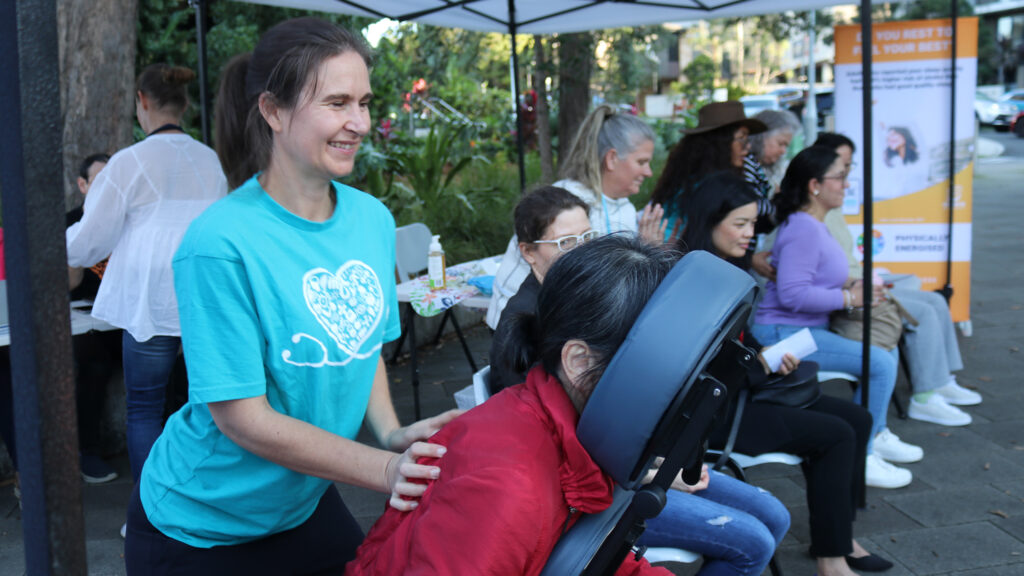Burnout might be fun when you’re on a skidpan or race track and there’s nothing else to worry about other than frying the tyres.
However, when burnout hits as a loss of interest in once enjoyable leisure and work pursuits and/or the development of a critical spirit towards others (work colleagues, administration or church members), a recharge and overhaul is needed—to reset the equilibrium of that individual and those close to them.
Unfortunately, this burnout can be an all-too-familiar experience among our pastors. First we must understand how burnout happens.
Recent pastoral surveys reveal low job satisfaction, isolation and feelings of being trapped; requisite skills aren’t necessarily readily recognised in government or private sector employment; and the work negatively impacts their families.1,2 This is not to mention increased physical health risks over their non-clergy neighbours and that workplace failures take a “spiritual failure” mindset that can negatively impact mental health.3
Considering that there are 50 points of differentiated roles a local pastor needs to be not only cognisant of, but proficient in, this makes for next-to-impossible demands on one’s time and resources.4
Add to this mix a local church’s general expectations—they might look for a pastor who can work well with their youth, or preach ground-shaking sermons, or be a proficient counsellor because that’s what the previous pastor could do. Then within the local church there are individual member’s expectations, which quite naturally vary as to what exactly constitutes a “good sermon”—the time taken, the topic, the format, the use of illustrations or lack of, whether a PowerPoint ought to be used or video. And so the list goes on. So what can steady a pastor’s resolve amidst an overwhelming array of duties and expectations? Their personal understanding of God’s calling on their lives. This of course can mean that the individual pastor may not appear to be the best match for your local church. Their strengths and weaknesses might not complement what the local church is looking for, or the local church’s plans might not match well with the pastor’s particular calling to the gospel ministry.
Pastoral strengths and weaknesses call for a maturity on both the part of the pastor and the congregation. Those weaknesses are not something to be ignored or even necessarily the prime target of development.5 Rather, apparent weakness can be the real avenues of where and how God desires to work in and through our lives. Does “when I am weak, then I am strong” ring any bells? (2 Corinthians 12:10).
It is important to recognise that the pastor often carries the dual responsibility of being the shepherd to their family, for as a spouse and a parent, that is his or her primary responsibility as per any other Christian spouse and parent (Ephesians 5:25, 6:4, 1 Timothy 3:3, 12), along with being the shepherd for the church family. It is only when the family is appropriately ministered to, that the pastor’s effectiveness within the congregation can be realised. This of course is a two-way street, for the pastor’s family similarly joins in as the chief cheer squad for the pastor.
The local church membership and attendees, likewise play a significant role in pastoral care. Just as the pastor has a biblical mandate to manage their own family well, so too does the local church have a responsibility to respectfully support their leader and his/her family (Hebrews 13:17, 1 Thessalonians 5:12). This is how the two-way street operates, as the pastoral family ministers to the needs of the church, the church similarly ministers to the needs of the pastor and their family.
Continuing the idea of biblical mandate, each member bears the responsibility to pray for their leaders (Hebrews 13:18, 1 Timothy 2:2,3)—that God will lead and direct them, that God will be their source of strength and motivation, that the leader will continue to grow in their effectiveness as a gospel minister as the members themselves seek to continue to grow in Christ (Ephesians 4:15). [pullquote]
Finally, the local church members are responsible for holding each other and the leadership accountable to God’s revealed will or clear teaching (1 Thessalonians 5:14-17). However, there needs to be discernment in how this accountability is exercised. I am not suggesting that a Facebook post is an effective means. Rather, Scripture provides a principle of approaching the individual personally to both understand and be understood. If that is not achievable, the principle proceeds to the inclusion of elders (Matthew 18:15, 16).
While the church pastor primarily interacts with the local membership, they do have significant obligations to their employer. The employer, whether that be local conference, union or division, has as great an obligation to the pastor to ensure they are nurtured, supported and developed.
The employing body shares responsibility with the local church to keep the pastor accountable to the clear teaching of God’s Word, along with praying for its pastors. And finally, the employing body has a responsibility to continue to provide opportunity for the pastor to clarify and refine God’s calling on his or her other life and practically assist in the fulfilment of that calling. For who would want to fight God? (Acts 5:39).
So whose responsibility really is pastoral care? It is plain to see that it encompasses 360 degrees. The pastor has a role, the church administration as an employing body has a role and the local church members, likewise, have a role. Each role is similar, yet distinct, and each is crucial to prevent burnout of pastors, unnecessary frustration of church members and the realisation of God’s kingdom purpose for His end-time people.
The way forward? Research would suggest the use of counselling services for pastoral families, educating congregations on the challenges of pastoral family needs and continuing to include spouse employment support, child adjustment support, crisis phone numbers, network rebuilding support, particularly for those who are frequently relocated.1 Additional initiatives being implemented in Protestant and Jewish congregations include the formation of financial support funds for leave in conjunction with increased leave provisions.6 But are they enough?
Moving forward cannot happen without prayer—a collective, yet individually actioned, pressing in to God; to have more of Him and a seeking to be more like Him. A genuine revival, complete with conviction of sin, accompanied by heartfelt repentance and humility and a renewed willingness to let God lead all those involved (2 Chronicles 34). God is Sovereign, it is His kingdom, His mission; let’s give Him the honour and the glory by doing church—being the church—His way!
Lorenzo Berry recently completed a Graduate Diploma in Lifestyle Medicine. He has 15 years’ experience as a church pastor and is passionate to see the Church, and especially his pastoral colleagues, realise optimal levels of health and wellness.






